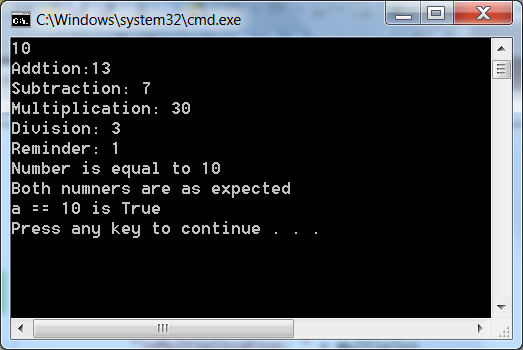Nullable Types in C#
In C# types are divded into 2 broad categories:
- Value types - int, float, double, structs, enums, etc.
- Reference types - Interface, Class, delegates, arrays, etc.
by default value types are non nullable. TO make them nullable use ?
- int i = 0 (i is non nullable, so i cannot be set to null, i = null will generate compiler error)
- int? j = 0 (j is nullable int, so j = null is legal)
Nullable types bridge the difference between C# types and database types
Below program shows the compiler error that we get if we try to set the null value to the value types.
Write a program to check is user is married or not. Set boolean variable to null while writing the program.
using System; class Program { static void Main() { bool? isMarried = null; if (isMarried == true) Console.WriteLine("User is married"); else if (isMarried == true) Console.WriteLine("User is not married"); else Console.WriteLine("User did not answer the question"); } }
Output:
Null coalescing operator
Write a program to assign a value of TicketsOnSell to TicketsAvailable. If TicketsOnSell are null, assign value 0 to TicketsAvaialable.
using System; class Program { static void Main() { int? TicketsOnSale = null; int TicketsAvaialable = TicketsOnSale ?? 0; Console.WriteLine("TicketsAvaialable: " + TicketsAvaialable); } }





Comments
Post a Comment